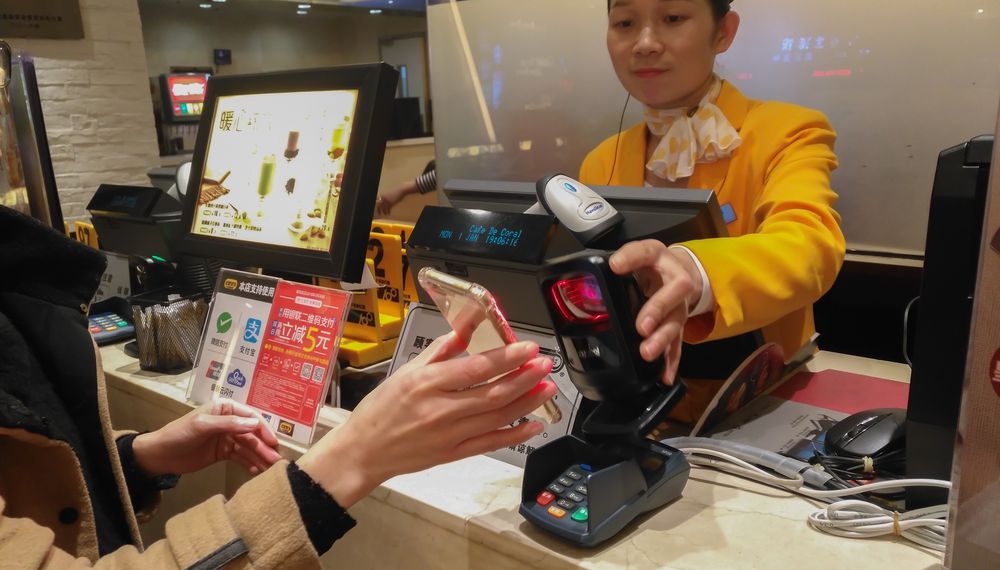Less than a decade after the first mobile payment solutions were unveiled, people around the world have started adopting them at an accelerating rate. However, with the looming threat of economic slowdown, many are beginning to question whether cryptocurrencies, particularly those that prioritize privacy, are the better choice.
The recent Venezuelan hyperinflation problem is a perfect example of this conundrum. Payment apps in the country would not help the general population since the underlying economy has all but collapsed. Cryptocurrencies, on the other hand, subvert this problem by offering a stable, global economy far removed from politics.
https://twitter.com/alegw/status/1091814128166060032
The Rise of Payment Apps
While QR code-based payment terminals are not extremely common in the West, they are almost everywhere in countries such as China and Japan. With over 900 million monthly active users, WeChat is the largest payments company in the domain. Initially launched as a social media and chat application, it reached peak popularity when people began using WeChat Wallet, a fully insured wallet that could be used to pay for utility, groceries, taxis, food deliveries and almost anything else. Even large brands like Starbucks have a fair bit of presence on the application, allowing users to send gift cards purchased with their WeChat balance. eMarketer estimates that China is the top country in terms of proximity mobile payment adoption, accounting for 61 percent of the world’s mobile payment usage. A key differentiating factor between WeChat Pay and Western payment solutions such as Apple Pay is that the former offers everything from retail and digital payments to chat functionality and even includes a full-fledged microapp marketplace. WeChat users in China rarely have to venture out to a third-party service to hail a taxi, order a sandwich, pay a friend, book a ticket or hire a plumber. In most other countries, one would generally need at least three to five separate apps to accomplish the same thing.
Crypto as the Solution?
While this level of integration may seem like a good thing, many believe that WeChat has amassed a monopoly and have raised concerns over privacy and security. At this point, it is an open secret that WeChat’s parent company Tencent has close ties to the Chinese government. With the amount of control it has over the population at large, the company could easily collect and report sensitive data. Chinese citizens have to submit some form of identification as part of WeChat’s registration, essentially a simplified form of KYC. Cryptocurrency, on the other hand, is not as convenient as WeChat and in some cases, not even as practical as Apple Pay or Google Pay. However, privacy-centric tokens such as Monero (XMR) and Zcash (ZEC) not only offer confidential transactions but also censorship resistance. Given that users have to abide by Tencent’s terms and conditions, any content added can be removed without as much as a notice. Cryptocurrency blockchains, on the other hand, are immutable. No government or commercial entity can control content or transactions, boosting transparency far beyond what is possible today with traditional forms of money. The only question then is, how long until the rest of the world values privacy and censorship resistance over convenience? Do you think WeChat will be overtaken by a cryptocurrency based payment solution in the future? Let us know your thoughts in the comments below!
Top crypto projects in the US | April 2024
Trusted
Disclaimer
In adherence to the Trust Project guidelines, BeInCrypto is committed to unbiased, transparent reporting. This news article aims to provide accurate, timely information. However, readers are advised to verify facts independently and consult with a professional before making any decisions based on this content. Please note that our Terms and Conditions, Privacy Policy, and Disclaimers have been updated.

Rahul Nambiampurath
Rahul Nambiampurath's cryptocurrency journey first began in 2014 when he stumbled upon Satoshi's Bitcoin whitepaper. With a bachelor's degree in Commerce and an MBA in Finance from Sikkim Manipal University, he was among the few that first recognized the sheer untapped potential of decentralized technologies. Since then, he has helped DeFi platforms like Balancer and Sidus Heroes — a web3 metaverse — as well as CEXs like Bitso (Mexico's biggest) and Overbit to reach new heights with his...
Rahul Nambiampurath's cryptocurrency journey first began in 2014 when he stumbled upon Satoshi's Bitcoin whitepaper. With a bachelor's degree in Commerce and an MBA in Finance from Sikkim Manipal University, he was among the few that first recognized the sheer untapped potential of decentralized technologies. Since then, he has helped DeFi platforms like Balancer and Sidus Heroes — a web3 metaverse — as well as CEXs like Bitso (Mexico's biggest) and Overbit to reach new heights with his...
READ FULL BIO
Sponsored
Sponsored

